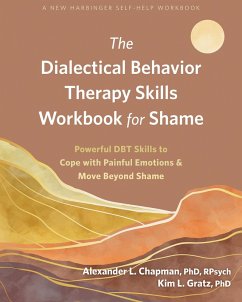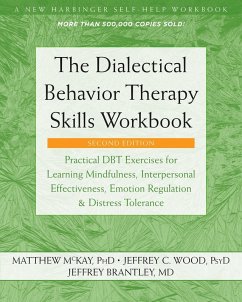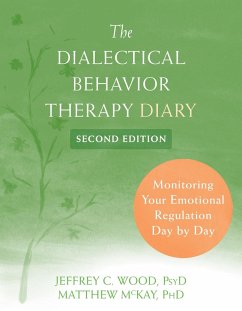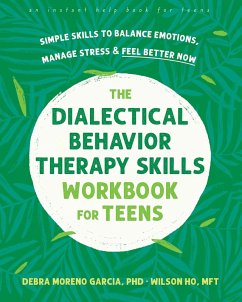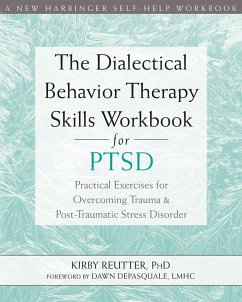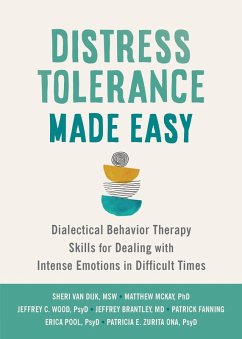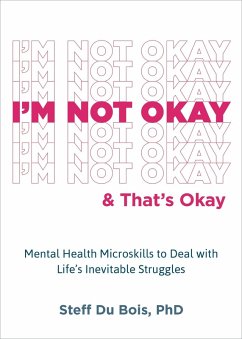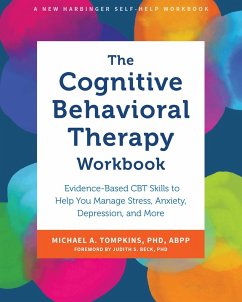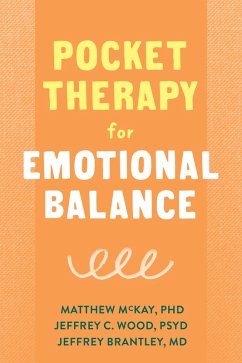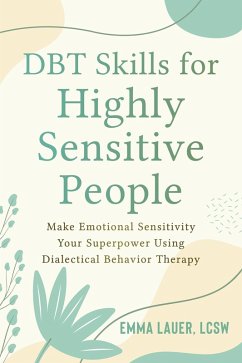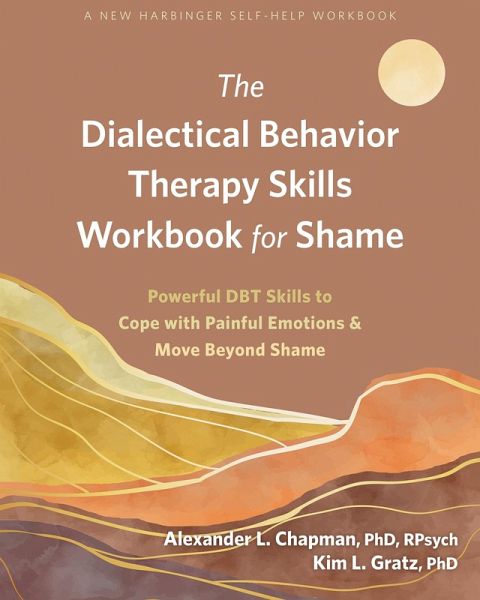
Dialectical Behavior Therapy Skills Workbook for Shame (eBook, PDF)
Powerful DBT Skills to Cope with Painful Emotions and Move Beyond Shame

PAYBACK Punkte
8 °P sammeln!
Powerful dialectical behavior therapy (DBT) skills to move beyond shame and toward a place of peace and healing. Shame is a devastating emotion, and one that's often difficult to work through. If you are hurting, you should know that you aren't alone. Shame may be the result of a past trauma, feelings of insecurity, or even guilt. Shame can also spiral out of control, make you feel trapped and hopeless, and lead to more serious mental health issues such as anxiety and depression. So, how can you soothe intense feelings of shame and find lasting peace and emotional balance? Written by renowned ...
Powerful dialectical behavior therapy (DBT) skills to move beyond shame and toward a place of peace and healing.
Shame is a devastating emotion, and one that's often difficult to work through. If you are hurting, you should know that you aren't alone. Shame may be the result of a past trauma, feelings of insecurity, or even guilt. Shame can also spiral out of control, make you feel trapped and hopeless, and lead to more serious mental health issues such as anxiety and depression. So, how can you soothe intense feelings of shame and find lasting peace and emotional balance?
Written by renowned DBT experts, The Dialectical Behavior Therapy Skills Workbook for Shame offers a step-by-step, evidence-based approach to healing from shame using the core skills of emotion regulation, distress tolerance, mindfulness, and interpersonal effectiveness. Using the exercises in this workbook, you'll learn to cultivate nonjudgmental self-acceptance, and discover strategies for managing difficult emotions-even in situations that trigger feelings of shame, guilt, or self-directed anger.
This workbook will help you:
If you are struggling with shame, you are not alone-and there is help. This step-by-step workbook can help you look beyond these intense feelings and start seeing yourself with more clarity, compassion, and acceptance.
Shame is a devastating emotion, and one that's often difficult to work through. If you are hurting, you should know that you aren't alone. Shame may be the result of a past trauma, feelings of insecurity, or even guilt. Shame can also spiral out of control, make you feel trapped and hopeless, and lead to more serious mental health issues such as anxiety and depression. So, how can you soothe intense feelings of shame and find lasting peace and emotional balance?
Written by renowned DBT experts, The Dialectical Behavior Therapy Skills Workbook for Shame offers a step-by-step, evidence-based approach to healing from shame using the core skills of emotion regulation, distress tolerance, mindfulness, and interpersonal effectiveness. Using the exercises in this workbook, you'll learn to cultivate nonjudgmental self-acceptance, and discover strategies for managing difficult emotions-even in situations that trigger feelings of shame, guilt, or self-directed anger.
This workbook will help you:
- Identify the root cause of your shame
- Experience difficult emotions without acting on them
- Move past self-destructive behaviors
- Express yourself honestly and openly
- Build healthy, supportive relationships with others
If you are struggling with shame, you are not alone-and there is help. This step-by-step workbook can help you look beyond these intense feelings and start seeing yourself with more clarity, compassion, and acceptance.
Dieser Download kann aus rechtlichen Gründen nur mit Rechnungsadresse in A, B, BG, CY, CZ, D, DK, EW, E, FIN, F, GR, HR, H, IRL, I, LT, L, LR, M, NL, PL, P, R, S, SLO, SK ausgeliefert werden.




